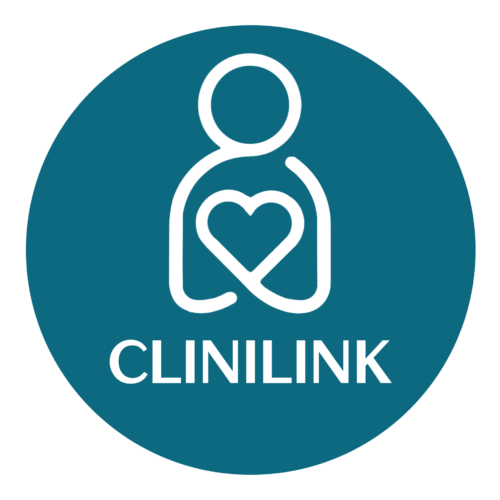Introduction: What I Learned About Insomnia and Cardiovascular Risk
Recently, I attended a fascinating talk by Dr Yassir Javed, sponsored by Idorsia, where he discussed the link between insomnia and cardiovascular disease (CVD). As someone deeply interested in optimising health outcomes, I was particularly struck by how poor sleep is not just an inconvenience—it’s a significant risk factor for heart disease.
Dr Javed highlighted that insomnia contributes to hypertension, metabolic dysfunction, and inflammation, all of which increase CVD risk. He also explored the role of Daridorexant, a dual orexin receptor antagonist (DORA), as a promising solution that differs from traditional sleep medications.
Here’s what I learned about:
✅ How insomnia impacts cardiovascular health
✅ Why treating sleep disorders is critical for heart disease prevention
✅ How Daridorexant offers a safer, non-sedative approach to sleep improvement
How Insomnia Increases Cardiovascular Risk
Dr Javed emphasised that insomnia is more than just difficulty sleeping—it has serious health consequences. Chronic sleep disruption triggers physiological changes that can accelerate CVD progression:
- Increased blood pressure – Insufficient sleep leads to sympathetic nervous system overactivation, resulting in sustained hypertension.
- Atherosclerosis and arterial stiffness – Sleep deprivation increases inflammatory markers like C-reactive protein (CRP), which damages blood vessels.
- Dysregulated glucose metabolism – Sleep disturbances contribute to insulin resistance, increasing the risk of type 2 diabetes—a major CVD risk factor.
- Autonomic nervous system dysfunction – Poor sleep disrupts the balance between sympathetic (stress) and parasympathetic (relaxation) activity, which can trigger arrhythmias.
- Higher cortisol levels – Chronic stress and sleep deprivation raise cortisol, leading to weight gain, high cholesterol, and increased heart disease risk.
Scientific Evidence on Insomnia and CVD
Dr Javed referenced several key studies, including:
- A large meta-analysis published in the European Heart Journal (2021) showing that insomnia increases CVD risk by 45%.
- Research linking sleep deprivation to a higher risk of myocardial infarction (heart attack) and stroke.
- Evidence that treating insomnia may lower blood pressure and improve metabolic health, indirectly reducing CVD risk.
This reinforced the importance of addressing sleep issues, not just for better rest, but as a preventive measure for long-term heart health.
Why Daridorexant Stood Out as a Safe Insomnia Treatment
A major part of Dr Javed’s discussion focused on treatment options, particularly how Daridorexant offers a modern approach to insomnia management.
How Daridorexant Works
Unlike benzodiazepines (e.g., diazepam) or Z-drugs (e.g., zopiclone, zolpidem), which induce sedation, Daridorexant is a dual orexin receptor antagonist (DORA). It targets the wakefulness system by blocking orexin, the neurotransmitter responsible for alertness.
Key Benefits of Daridorexant for Insomnia and CVD Risk
✔ Non-sedative approach – Unlike traditional sleep medications, Daridorexant does not cause next-day drowsiness or cognitive impairment.
✔ Safer for patients with CVD – Dr Javed highlighted that Daridorexant does not suppress respiration like benzodiazepines, making it suitable for those with sleep apnoea or heart disease.
✔ Minimal impact on blood pressure – Unlike some sedatives that can cause hypotension or rebound hypertension, Daridorexant maintains stable cardiovascular function.
✔ Supports metabolic health – By improving sleep duration and quality, Daridorexant may reduce stress-related inflammation, insulin resistance, and obesity.
✔ No addiction or withdrawal risk – Unlike benzodiazepines, it does not cause dependence, making it a viable long-term solution.
Scientific Evidence Supporting Daridorexant
Dr Javed mentioned that Phase III clinical trials demonstrated Daridorexant:
- Improves both sleep onset and maintenance
- Enhances daytime functioning without sedation
- Does not increase cardiovascular events or impact autonomic regulation
This makes Daridorexant an attractive option for individuals with insomnia and underlying heart disease concerns.
How to Optimise Sleep for Better Heart Health
In addition to discussing pharmacological approaches, Dr Javed highlighted lifestyle interventions that support both sleep quality and cardiovascular health:
Maintain a regular sleep schedule – Going to bed and waking up at the same time regulates circadian rhythms.
Limit screen time before bed – Blue light disrupts melatonin production, affecting sleep onset.
Exercise regularly – Moderate physical activity improves sleep efficiency and heart health.
Avoid caffeine and alcohol late in the day – Both disrupt deep sleep and increase nighttime awakenings.
Manage stress through mindfulness or relaxation techniques – Stress reduction lowers cortisol levels, improving sleep and reducing CVD risk.
Final Thoughts: My Key Takeaways from Dr Yassir Javed’s Talk
I found Dr Javed’s insights extremely valuable, especially when considering the underestimated role of insomnia in cardiovascular risk. The key takeaways for me were:
🔹 Poor sleep is a major, yet often overlooked, contributor to CVD risk.
🔹 Treating insomnia is not just about getting better rest—it’s about protecting long-term heart health.
🔹 Daridorexant offers a modern, non-sedative approach to insomnia treatment that is cardiovascular-safe.
🔹 Lifestyle interventions remain a cornerstone of sleep and heart health management.
If you or someone you know struggles with chronic insomnia, it’s worth speaking to a GP or sleep specialist about safe and effective treatment options like Daridorexant.
See our Blog on Sleep Hygeine for further support

